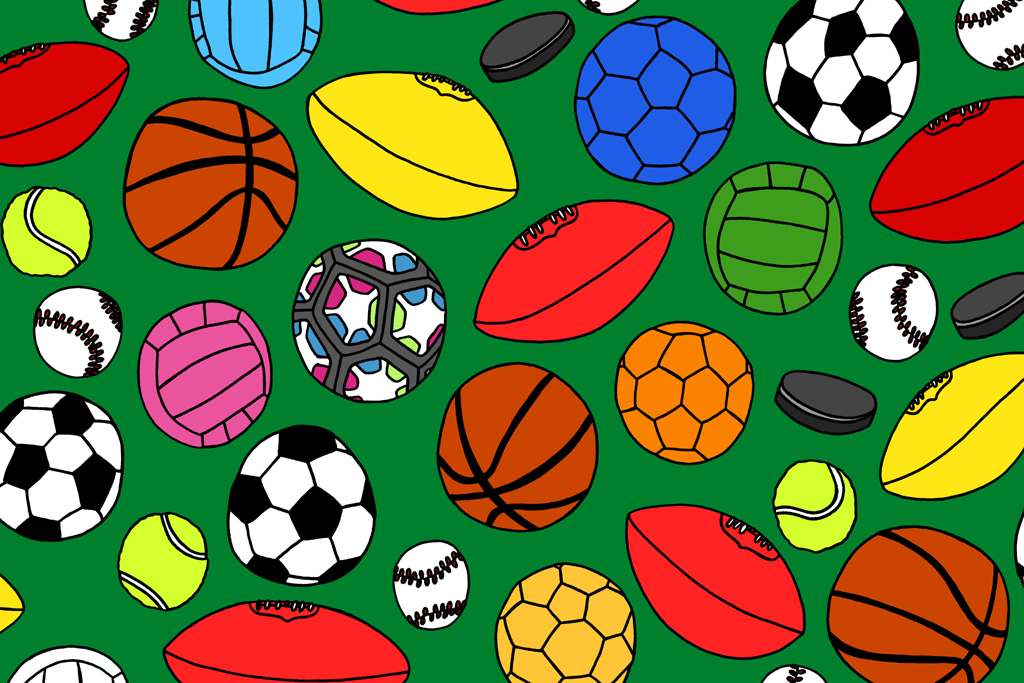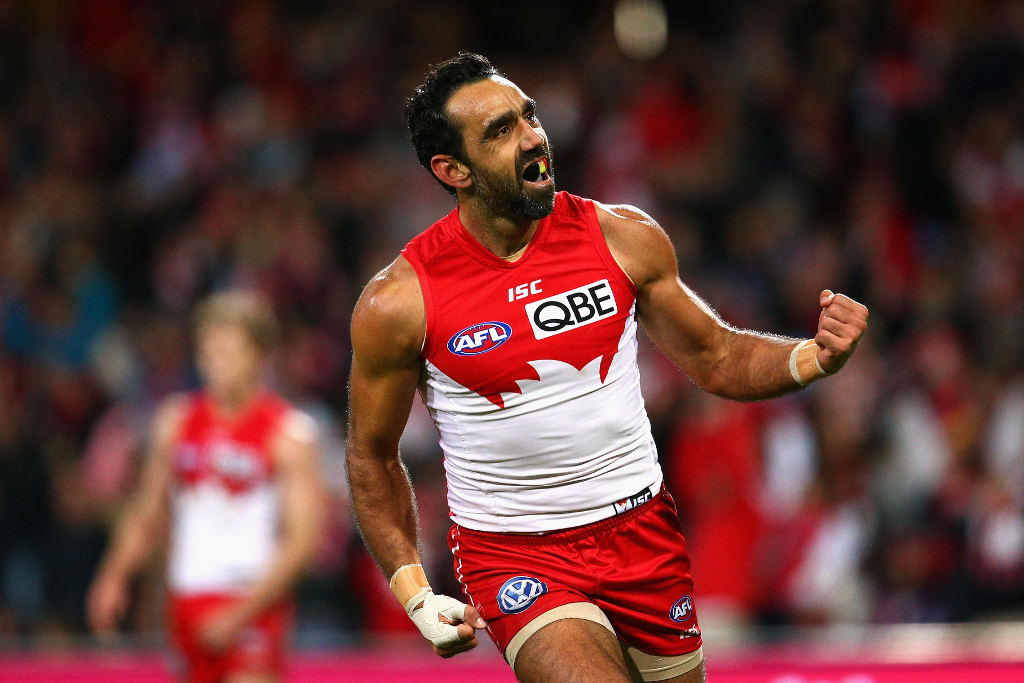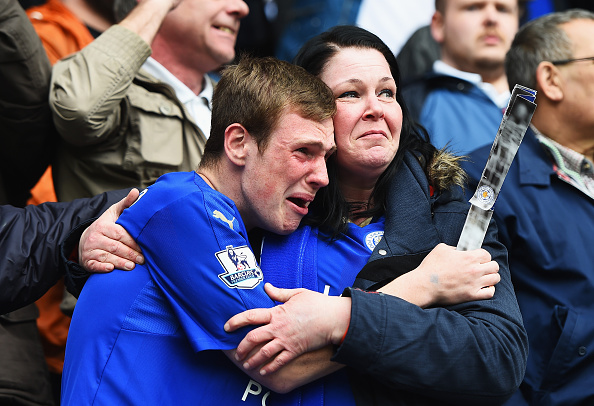RIP “Sportsball”: Let’s Quit Talking Down To People For Loving Sport
"Sport can be the source of the most beautiful, immersive experiences within society... Also, not for nothing, the joke is getting old."

As summer fades to its end, so comes the beginning of the sporting season. For some that means work tipping comps and fantasy leagues, for others it means making the weekly pilgrimage to their sporting ground of choice, donned in the colours of their team. But for a few — and we all know at least one — it’s a time epitomised by eye-rolling, smarmy comments, and the worst of them all: the dreaded comment about “sportsball”.
“Sportsball” for those spared the indignity of having heard it yet, is (as described by Know Your Meme) a derogatory term used to generically describe any sporting code that ends with the suffix “-ball”; think basketball, baseball, and football. It first appeared around 2007, and has since been used by everyone from cult web comic The Oatmeal to Broadway darling Lin-Manuel Miranda.
But outside the outdated joke term, is an actual ongoing issue: the view that sports are a lesser pursuit or hobby than art, and that the two form an opposing dichotomy within the wider framework of society.
Sport, in this sense, is seen as the realm of barbaric, macho brutes; while art (whether the act of making art, attending cultural events, or supporting the work of artists like musicians) is more refined and intelligent. One recent example of this was the moment when, during an otherwise excellent speech calling out Donald Trump, Meryl Streep said that without her fellow gathered artists there would be nothing left to watch but “football and Mixed Martial Arts, and those are not art”.

It’s a stereotype that’s often steeped in condescension for the lower class. As the accessibility and educational divide between the upper and lower class widens, so does the difference in recreation and the associations we have with each. Purveyors of film and music and literature do not need to deprave themselves with the basic entertainment of the masses at 30,000-seater stadiums. They have been taught to appreciate finer things in life, and are willing to show it. (As an aside, this also highlights the importance of ensuring art and artistic initiatives are inclusive and accessible to people of all classes).
It’s also a stereotype that’s incredibly far from the truth. Sport is as much a medium and conduit of art as any other part of society.
First of all: an acknowledgement. There are many reasons to have problems with some aspects of sports culture. Sport — especially the world of professional sport where countless young people are thrust into the multi-million-dollar limelight for the sake of our communal entertainment — is littered with problematic aspects.
Sexism, racism, and homophobia are rampant in most if not all professional leagues. The pay gap between professional male and female sportspeople is dire. Many clubs and teams, especially those focused around regional areas and countries, allow jingoistic attributes to fester. Worldwide, professional sport has become intrinsically linked with the gambling industry to a near-farcical point. The upper echelon of the sporting industry is littered with the worst of the worst of capitalist megalomania, from our own Eddie McGuire to Contender for World’s Worst Sporting Organisation, FIFA.
But the same can be said of practically every cultural space. These problems are just as commonplace within the industries of politics, religion, technology, and — yes — entertainment. There are unfortunately comparative figures and instances of oppression within every realm of our society. While this does not and will never make it right, it does highlight that we must take a holistic approach to all forms of oppression that continue to grip society. Merely writing off one section as too barbaric, too macho, or too far gone, helps nobody.
Sport can be the source of the most beautiful, immersive experiences within society.
When we look beyond sport as merely a “brutish” realm, you can see it’s also the source of some of the most beautiful, immersive experiences within society. While you may not immediately find it in the weekend’s sporting fixtures, there is so much within the world of sport that reflects the best aspects of a community.
Political landscapes have been formed and destroyed by sporting clubs, most notably by the sometimes centuries-old sporting clubs of Europe. Teams and their supporters often put in countless hours of work into creating banners, flags, and other paraphernalia with impeccable amounts of skills and finesse. It can be a form of familial and community bonding that spans generations, especially for low-income communities who are often locked out of other forms of recreation. There are countless weird jokes and nicknames that are created and occasionally formally adopted by sporting teams and codes. There’s a strange sense of camaraderie that occurs when everyone unanimously hates a rival (See: WWE’s Roman Reigns, who inspires the type of hate usually reserved for a Lannister).
Also, there is literally a type of sport for everyone. Enjoy peace and quiet, but still want high energy? Check out tennis. Like the idea of soccer but wish there was more scoring and blood? Try ice hockey or European Handball. Was Tony Hawk’s Pro Skater your favourite videogame growing up? Skateboarding and snowboarding is literally just that, all the time. Like watching women be stronger and tougher than most men who play sports? There are countless women’s leagues to go out and support, from netball, to soccer’s W-League, to the newly minted AFLW.
Sport also happens to be one of the few places where masculine emotion can be unreservedly expressed. In a world where so much pressure is placed upon the physical performance of young men, and where so much of their off-field behaviour is controlled by the sporting industrial complex, the occasional moments of pure, vulnerable emotion expression are not only a wonder to behold, but a revelation. From the hugs and dances of joy after a goal is scored in soccer, to that beautiful medal moment during the Western Bulldogs’ AFL Grand Final win, to the tears of fans and players alike after a hard loss, being able to broadcast and illustrate that this is a normal part of human life is not only one of sport’s better aspects, it may be its most important.
And really, in a world as dire as ours in 2017, who are we to stop anyone else from having fun? If, for around two hours a week, we can look past the horrors of our world, come together, and watch a few young people fumble about on grass, then let us have it. Nobody is forcing you at knifepoint to like sports. Also, not for nothing, “sportsball” really isn’t funny.
–
Feature illustration: Tegan Iversen.
–
Albert Santos is a Sydney writer. You can find them on Twitter here.

